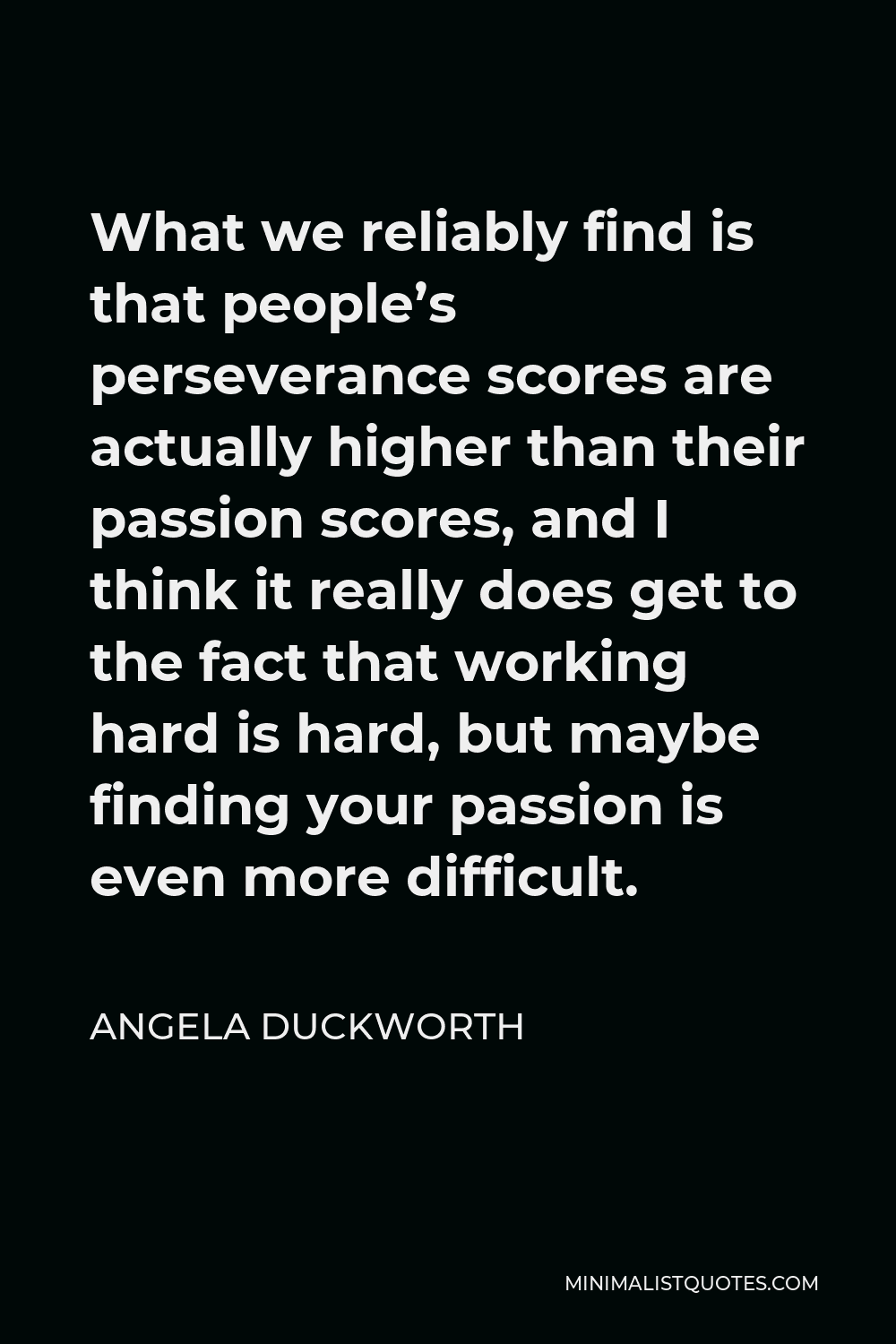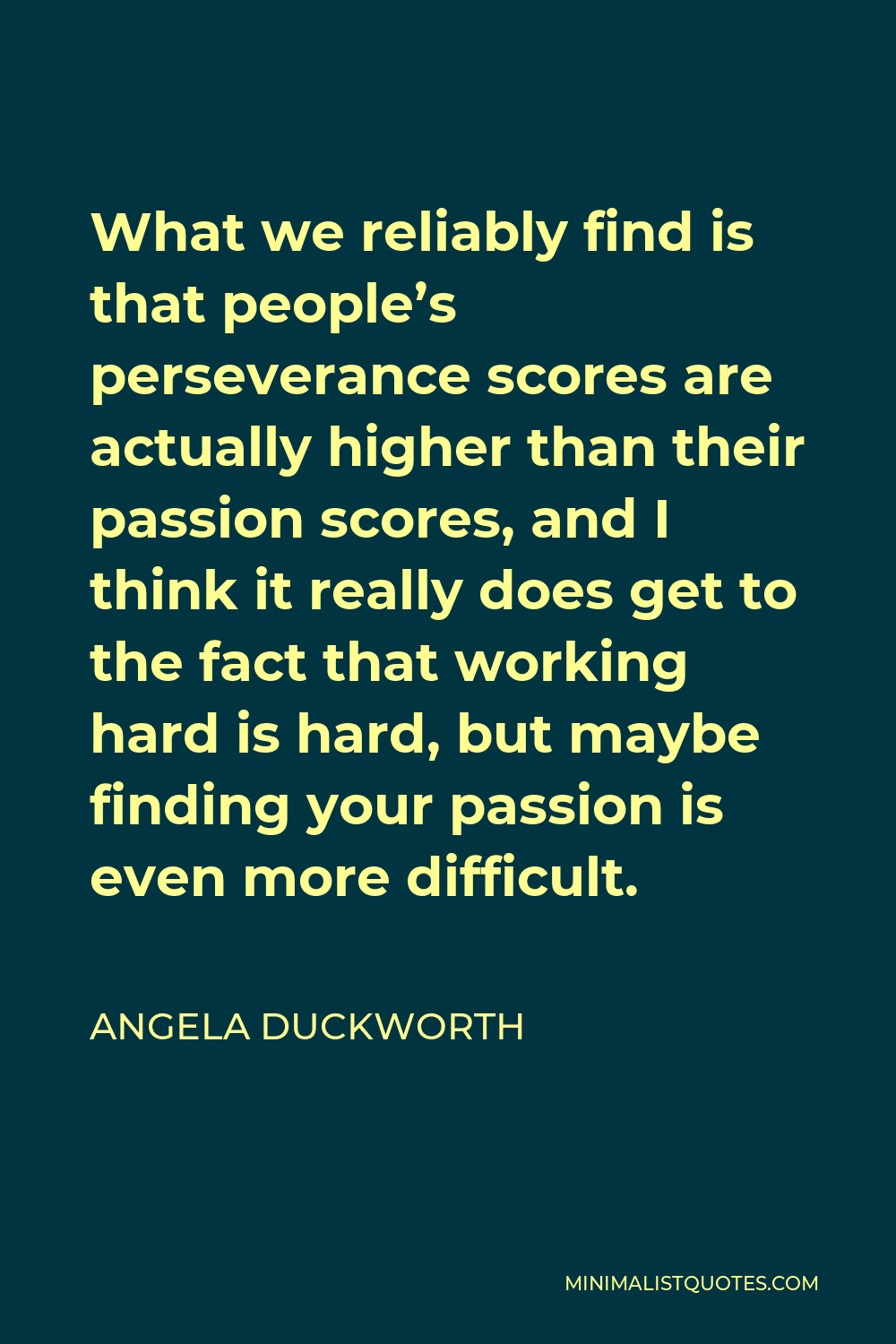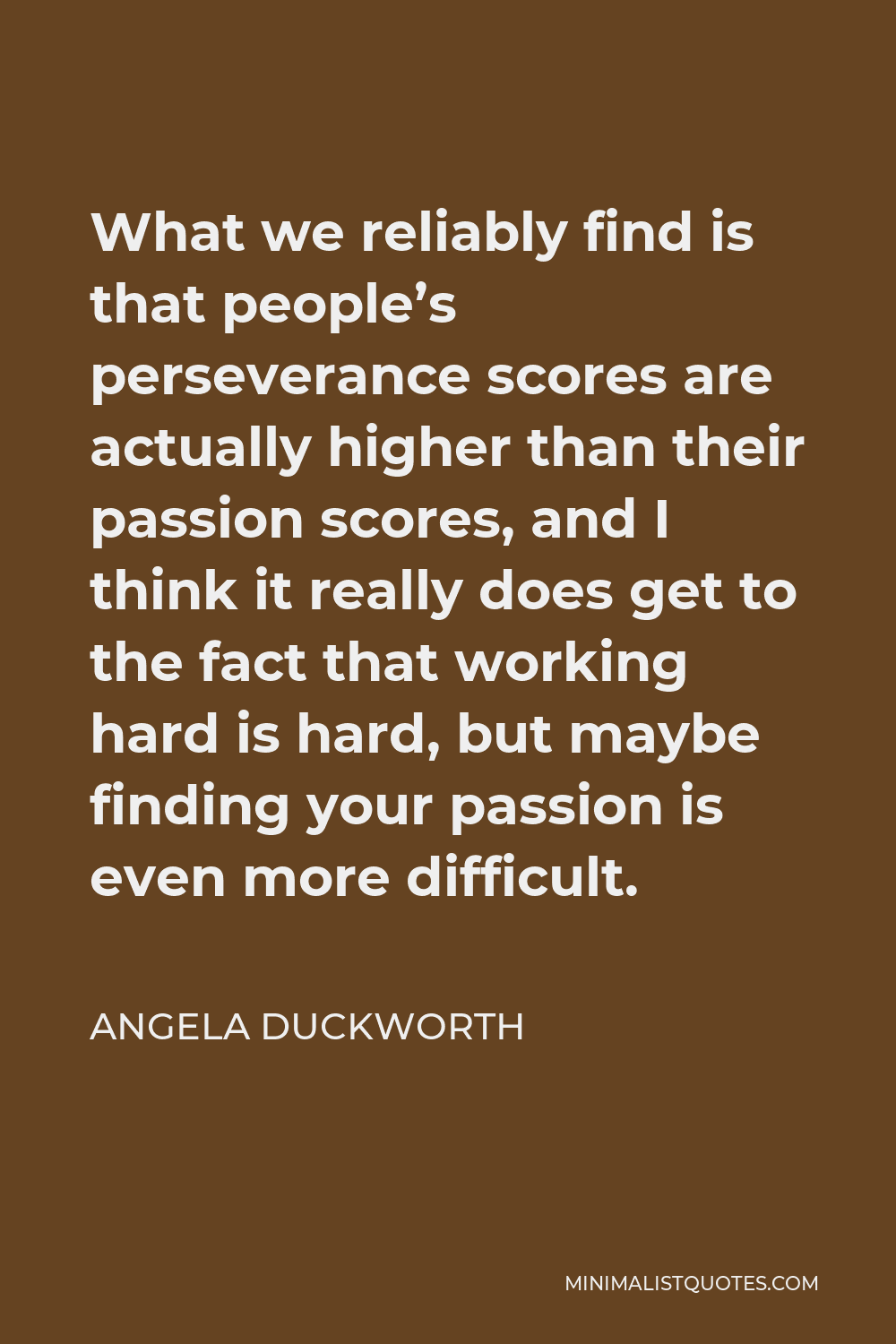I now have Grit Scale scores from thousands of American adults. My data provide a snapshot of grit across adulthood.
ANGELA DUCKWORTHWhat we reliably find is that people’s perseverance scores are actually higher than their passion scores, and I think it really does get to the fact that working hard is hard, but maybe finding your passion is even more difficult.
More Angela Duckworth Quotes
-







-





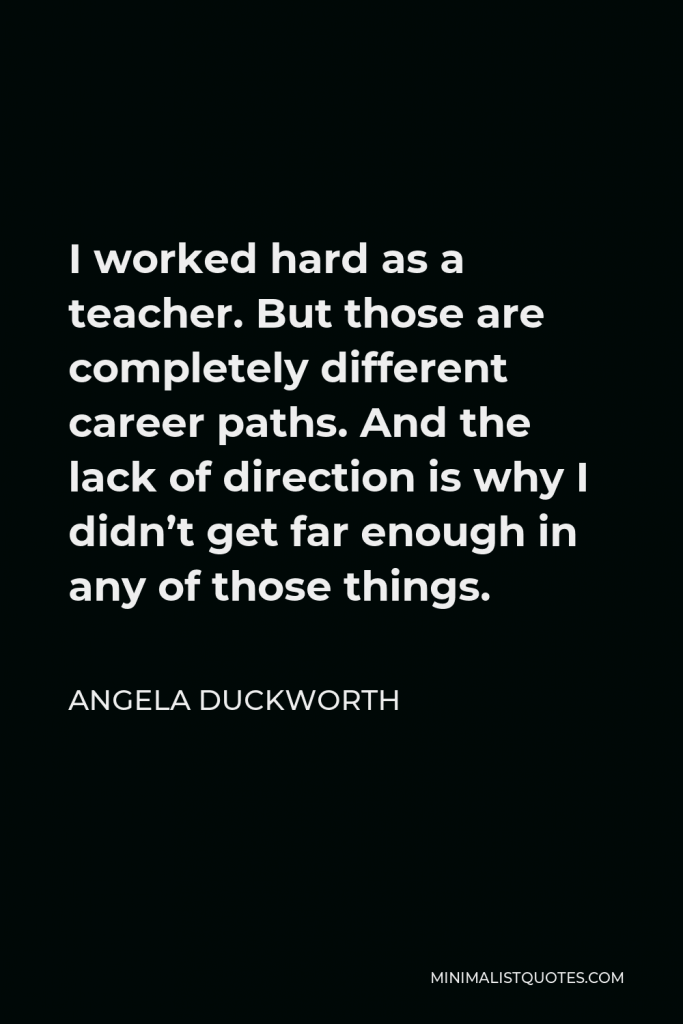

I worked hard as a teacher. But those are completely different career paths. And the lack of direction is why I didn’t get far enough in any of those things.
ANGELA DUCKWORTH -





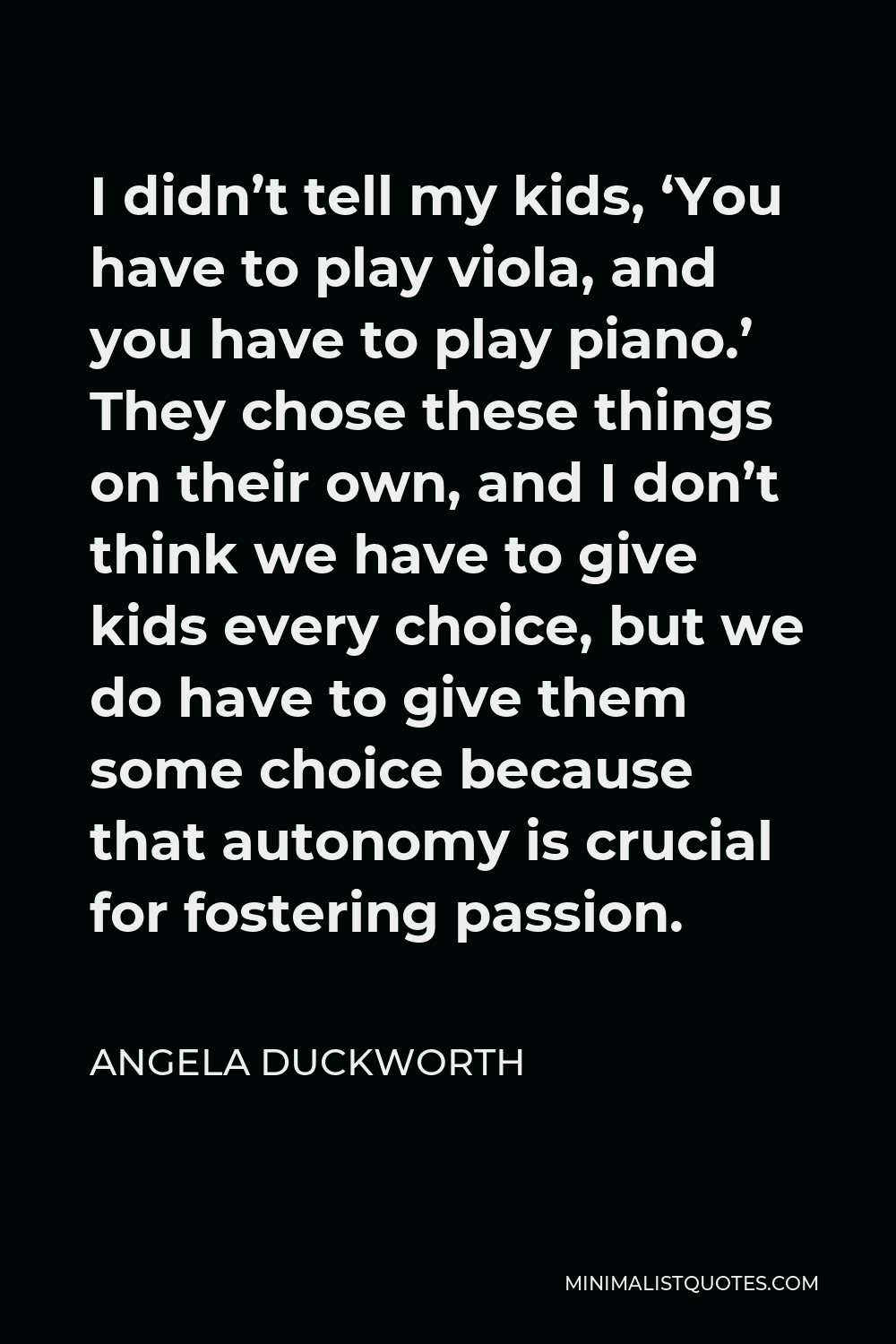
I didn’t tell my kids, ‘You have to play viola, and you have to play piano.’ They chose these things on their own, and I don’t think we have to give kids every choice, but we do have to give them some choice because that autonomy is crucial for fostering passion.
ANGELA DUCKWORTH -





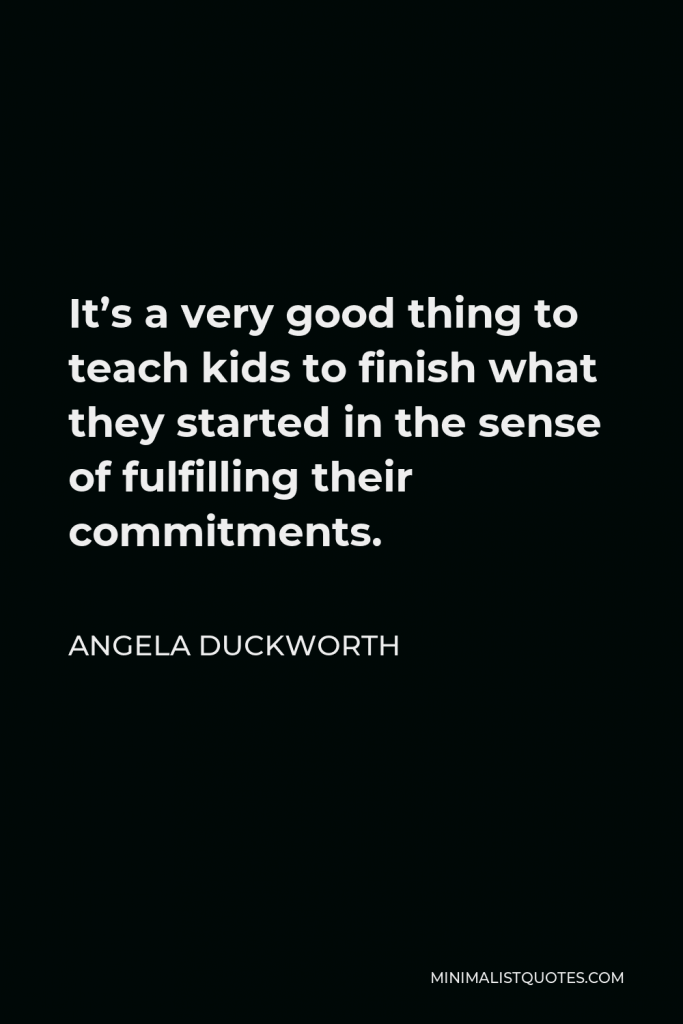

It’s a very good thing to teach kids to finish what they started in the sense of fulfilling their commitments.
ANGELA DUCKWORTH -





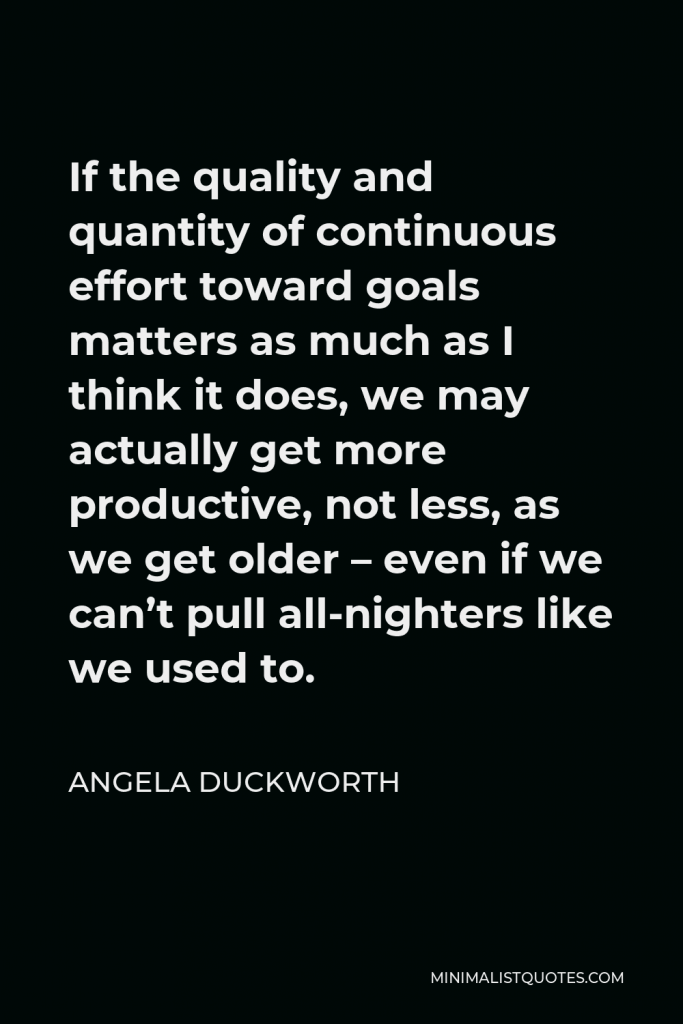

If the quality and quantity of continuous effort toward goals matters as much as I think it does, we may actually get more productive, not less, as we get older – even if we can’t pull all-nighters like we used to.
ANGELA DUCKWORTH -







Grittier students are more likely to earn their diplomas; grittier teachers are more effective in the classroom.
ANGELA DUCKWORTH -







I worked hard when I was a consultant. I worked hard when I was in graduate school looking at neuroscience.
ANGELA DUCKWORTH -





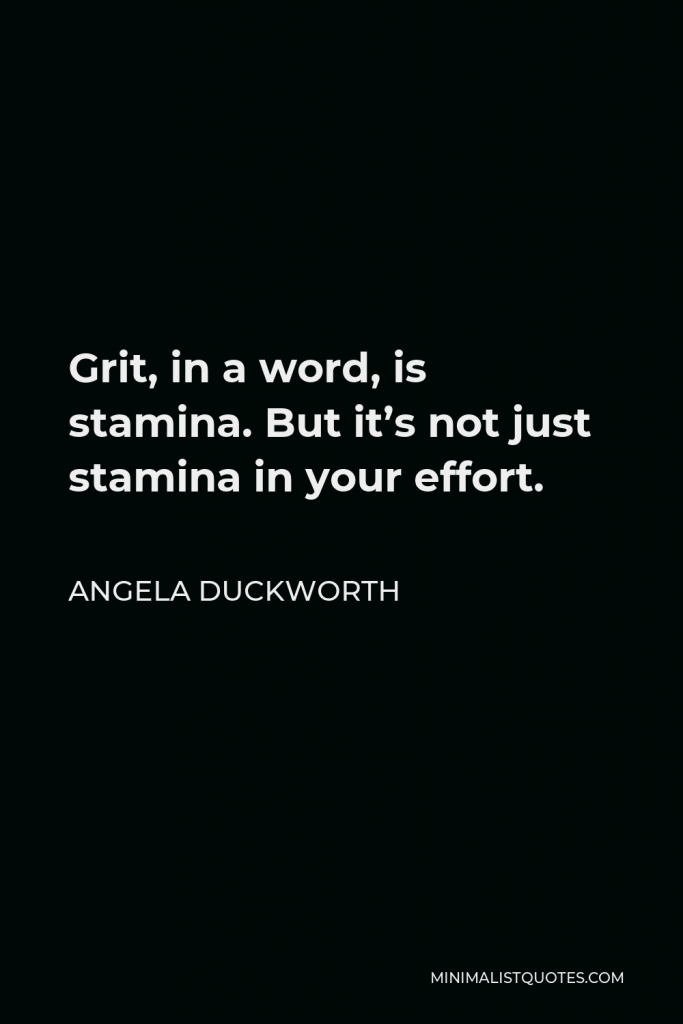

Grit, in a word, is stamina. But it’s not just stamina in your effort.
ANGELA DUCKWORTH -







I do think that whatever ambition I may have had natively was amplified by my father’s clear valuing of it. I knew that was what my dad really cared about.
ANGELA DUCKWORTH -







My dad was not super-intentional in his parenting. He was very self-absorbed. I won’t say mean or selfish per se, but very self-absorbed. I think he was just thinking out loud.
ANGELA DUCKWORTH -





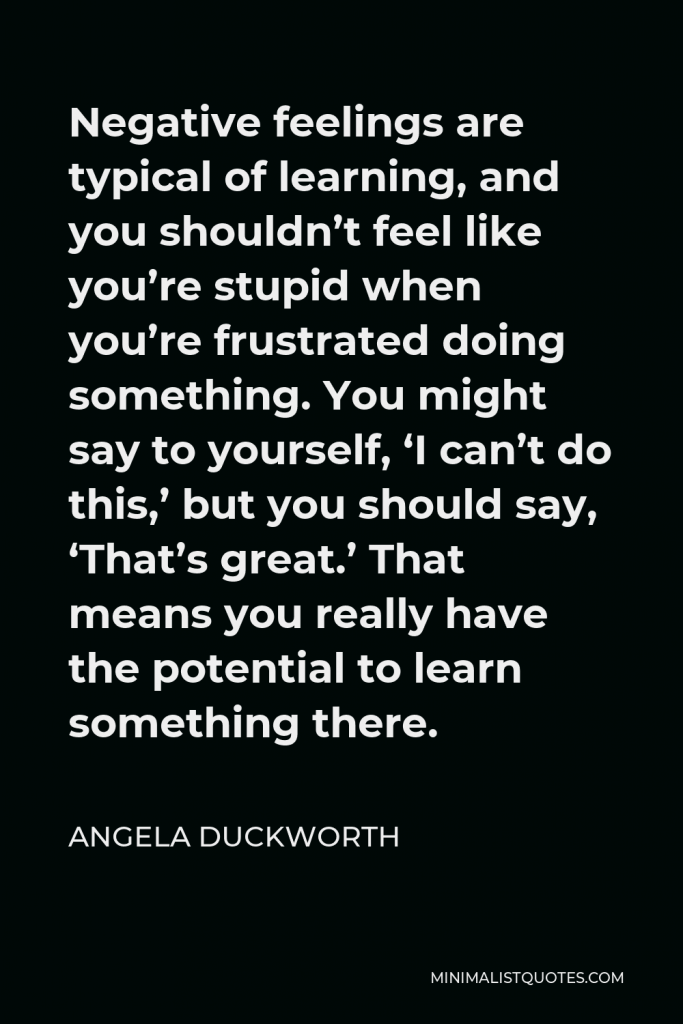

Negative feelings are typical of learning, and you shouldn’t feel like you’re stupid when you’re frustrated doing something. You might say to yourself, ‘I can’t do this,’ but you should say, ‘That’s great.’ That means you really have the potential to learn something there.
ANGELA DUCKWORTH -







I do feel it’s hard to be modest and humble and egoless when people are telling you you are so great and wanting to give you prizes and energy. I’m trying hard not to be an awful, narcissistic human being.
ANGELA DUCKWORTH -





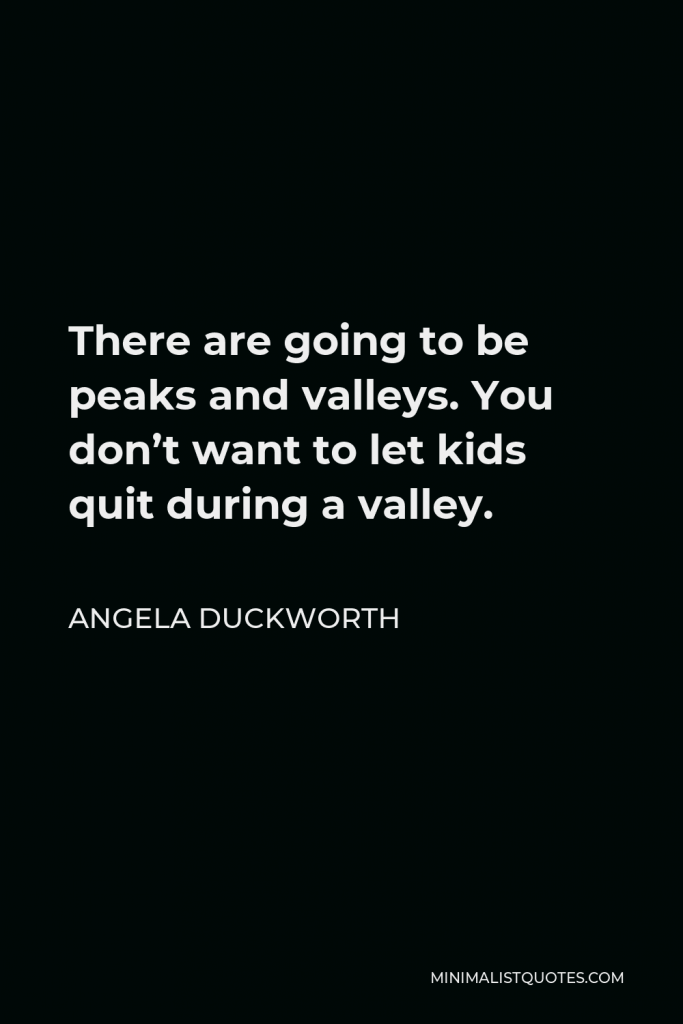

There are going to be peaks and valleys. You don’t want to let kids quit during a valley.
ANGELA DUCKWORTH -







If you’re never able to tolerate a little bit of pain and discomfort, you’ll never get better.
ANGELA DUCKWORTH -







I ended up doubling the math time that a conventional school would have. But I don’t think any of these things were path-breaking or unusual.
ANGELA DUCKWORTH -





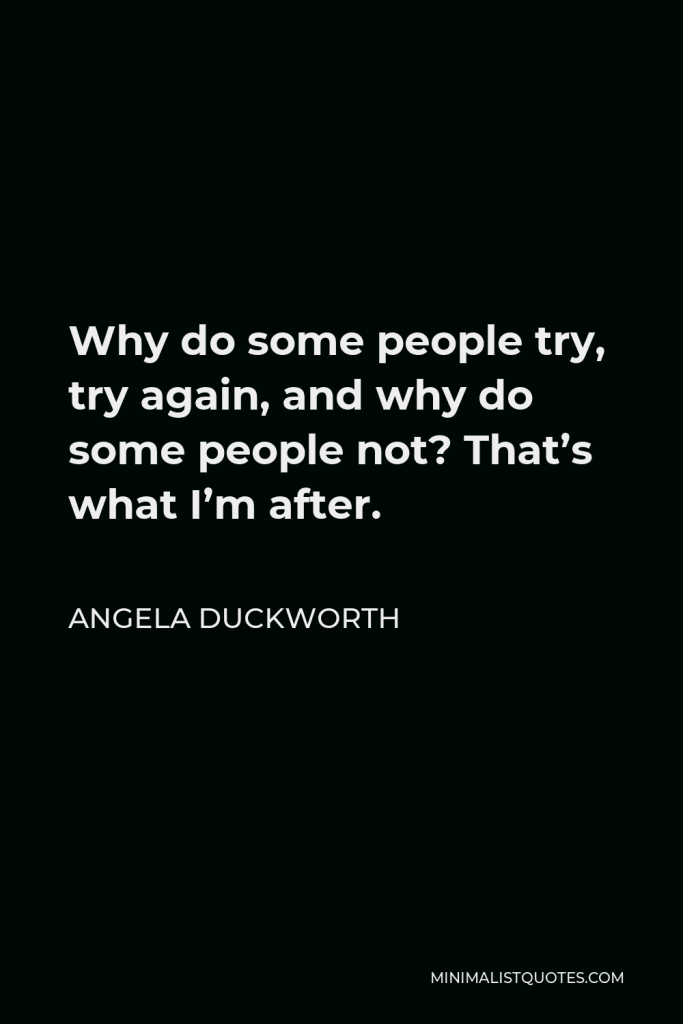

Why do some people try, try again, and why do some people not? That’s what I’m after.
ANGELA DUCKWORTH
